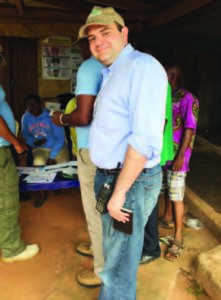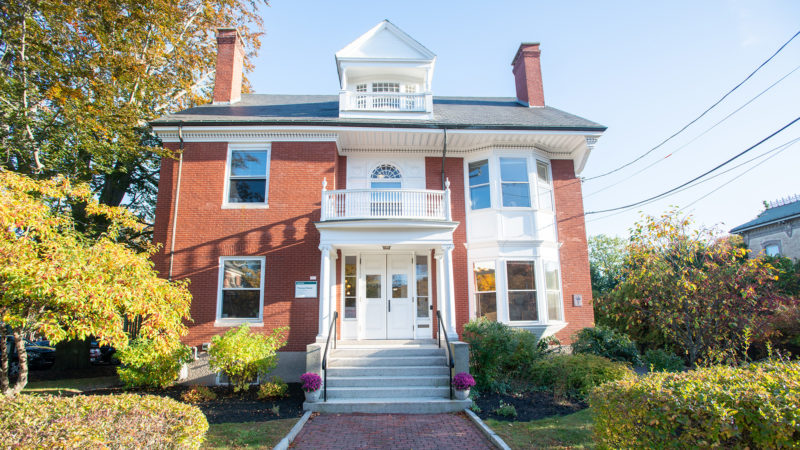Meet Matthew Page ’97
By the midpoint of his Upper School experience, Matt Page ’97 had developed two passions. The first was for England—the result of a yearlong experience in Plymouth, UK, as part of his father’s sabbatical from Bowdoin. The second: an affinity for the humanities, an interest nurtured by teachers like Debba Curtis.

Matt’s two passions converged when he began undergraduate studies in politics, philosophy, and economics at Oxford. He discovered that he was well-prepared. “Waynflete taught us that with strong writing, you have a survival skill,” Matt says. “In my line of work, writing well is an expectation. But if you write exceptionally well and pair it with an ability to think critically, you can make your ideas even more powerful and compelling.”
Matt completed his university education a few weeks before September 11, 2001. “The job market was catatonic—really, really tough,” he says. Demand in the intelligence sector was growing quickly, however— particularly for the younger generation of international affairs specialists—and he was hired by the Marine Corps as a civilian analyst. “It was that classic job interview situation where they said, ‘I see you’ve got a background in East Asia issues. We need a Nigeria person. So that’s going to be your job.’” Matt became deeply interested in Nigerian affairs and decided to make the country the focus of his expertise.
Waynflete’s emphasis on global citizenship had a strong effect on Matt. “It takes more effort to get somewhere from Maine. Waynflete helped bring the world to us. As I see the appalling lack of tolerance in today’s public discourse, I look back and realize that Waynflete instilled in us a real appreciation for other cultures, beliefs, and viewpoints—well before it was fashionable.” Working in Nigeria with people who have different cultural viewpoints hasn’t been intimidating. “I’m very comfortable with new experiences, and that came from Waynflete.”
Matt is currently on a one-year fellowship with the Council of Foreign Relations and has already had an op-ed published in The Washington Post. “I’ve been able to develop a good network of contacts, and the timing was right,” says Matt. “Media outlets are happy to publish compelling content, particularly if they’re confident that they won’t have to make a lot of effort to fix it.”
For the remainder of his fellowship, Matt will be co-authoring a book with another fellow from the Council on Foreign Relations—a former U.S. ambassador to Nigeria. The title is for a series that Oxford University Press is developing for a foreign policy generalist audience.
“I’m amazed at what my classmates are doing—from CEOs to people who are doing incredibly creative and artistic work,” Matt says. “Waynflete taught us that success can be judged in different ways. I remember Karen Whitney saying to me, ‘don’t let society judge what success is for you. Do what makes you happy and excel at it!’”



